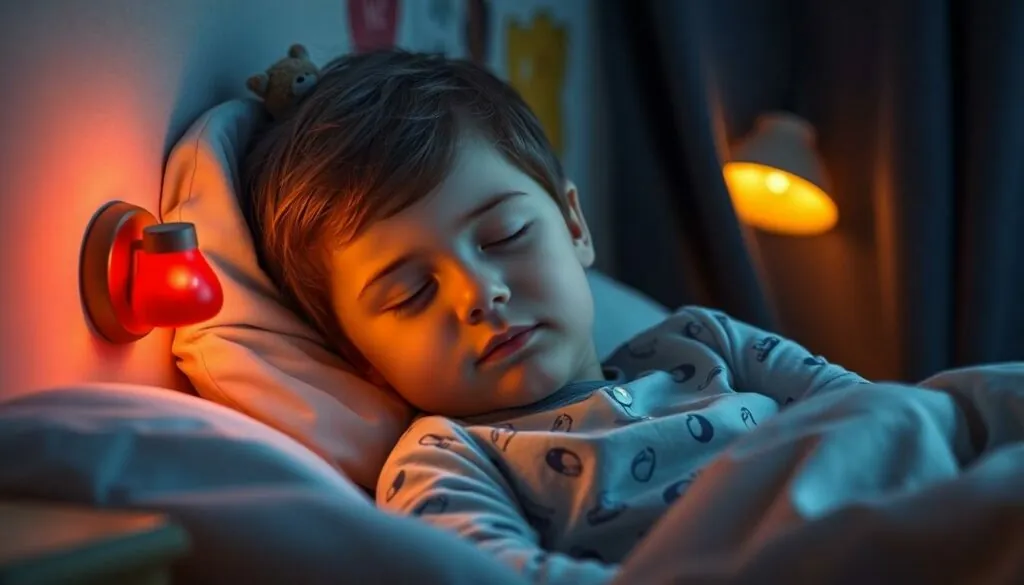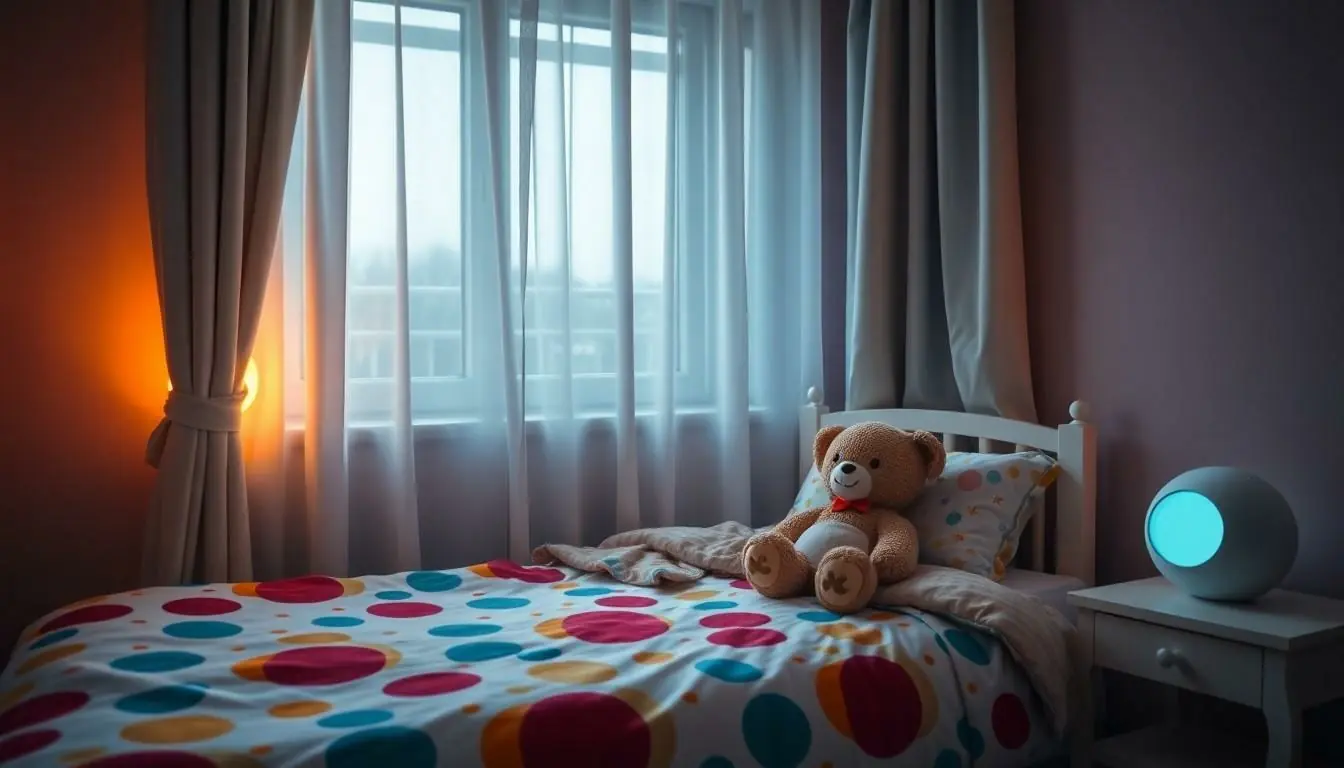Getting kids to sleep deeply isn’t just about avoiding those dreaded bedtime tantrums – it’s crucial for their growth development and overall well-being. While parents dream of peaceful nights children often seem to have different plans turning bedtime into an Olympic-level challenge.
Deep sleep plays a vital role in a child’s physical and mental development helping their bodies repair grow and strengthen their immune systems. It’s during these precious hours of profound slumber that their brains process new information consolidate memories and prepare for another action-packed day of discovery. Without quality deep sleep kids might struggle with attention mood swings and learning difficulties.
Establishing healthy sleep habits early on sets children up for success both in and out of the classroom. While there’s no magic formula for perfect sleep understanding the science behind deep sleep can help parents create effective bedtime routines that work for their little ones.
Table of Contents
ToggleWhat Is Deep Sleep and Why Kids Need It
Deep sleep represents the most restorative phase of sleep when brain waves slow down significantly. During this stage, children experience crucial physical and mental restoration processes essential for their development.
Sleep Cycles in Children
Children move through 4-5 sleep cycles nightly, each lasting 90-120 minutes. Each cycle includes light sleep, deep sleep (slow-wave sleep) and REM sleep phases. Young children spend 40% of their sleep time in deep sleep compared to 20% in adults. Infants initially enter REM sleep directly, while older children transition through light sleep first. The body releases growth hormones during deep sleep between 10 PM and 2 AM, making these hours particularly valuable for children’s development.
Benefits of Deep Sleep for Growing Bodies
Deep sleep triggers the release of essential growth hormones that repair muscles tissues. The brain consolidates memories learned during the day into long-term storage. Children’s immune systems strengthen as cytokines increase during deep sleep phases. The body restores energy reserves depleted during daily activities. Deep sleep enhances cognitive functions including attention span processing speed memory retention. Physical recovery occurs as blood flow increases to muscles joints bones. The glymphatic system removes metabolic waste from the brain protecting neural health.
Creating the Perfect Sleep Environment
A sleep-conducive environment promotes deeper sleep cycles in children. The right combination of temperature, lighting, and sound creates optimal conditions for restorative rest.
Temperature and Lighting
The ideal bedroom temperature for children’s sleep ranges between 68-72°F (20-22°C). Maintaining a cool environment helps regulate the body’s natural sleep-wake cycle through melatonin production. Blackout curtains block disruptive external light sources ensuring consistent darkness throughout the night. A small nightlight with red-spectrum bulbs provides comfort without interfering with sleep hormones when needed. Dimming lights 30 minutes before bedtime signals the brain to prepare for sleep while increasing natural melatonin production.
Noise Control Solutions
White noise machines mask sudden environmental sounds that disrupt deep sleep patterns. Sound machines set between 50-65 decibels create a consistent audio backdrop equivalent to soft rainfall. Adding thick curtains or acoustic panels absorbs echoes resonating through bedroom walls. Placing draft stoppers under doors prevents hallway noise from entering the room. Moving beds away from shared walls reduces noise transfer from adjacent rooms. Air purifiers serve dual purposes by filtering air and generating steady background sounds that promote uninterrupted sleep cycles.
Best Bedtime Routines for Deep Sleep
Establishing structured bedtime routines signals children’s bodies to prepare for deep sleep. These patterns create predictable transitions from active days to restful nights, promoting quality sleep cycles.
Consistent Sleep Schedule
A fixed sleep schedule aligns children’s circadian rhythms with natural sleep-wake patterns. Children respond positively to sleeping at 7:30-8:30 PM when their melatonin levels peak naturally. Setting wake times within a 15-minute window maintains this biological rhythm seven days a week. Electronics end 2 hours before bedtime to prevent blue light interference with melatonin production. Consistency extends to weekends with no more than 30-minute schedule variations to prevent disrupting established patterns.
Calming Pre-Sleep Activities
Quiet activities in the 30 minutes before bed promote mental relaxation for deep sleep. Reading stories creates focused attention while reducing mental stimulation. Gentle stretching exercises release physical tension without increasing heart rate. Simple breathing exercises, like counting breaths to 4, activate the parasympathetic nervous system. Soft music at 60-80 beats per minute induces alpha brainwave states conducive to sleep. Light back rubs or gentle hair stroking releases oxytocin which enhances feelings of security.
| Activity | Time Before Bed | Duration |
|---|---|---|
| Electronics Off | 2 hours | N/A |
| Quiet Play | 45 minutes | 15-20 mins |
| Bath/Hygiene | 30 minutes | 15-20 mins |
| Reading/Stories | 15 minutes | 10-15 mins |
| Final Cuddles | 5 minutes | 3-5 mins |
Common Deep Sleep Disruptors
Environmental factors frequently interfere with children’s deep sleep patterns, disrupting their natural sleep cycles. Understanding these common disruptors helps parents identify and address sleep issues effectively.
Screen Time Effects
Blue light from electronic devices disrupts melatonin production in children’s developing brains. Studies show exposure to screens within 2 hours of bedtime reduces deep sleep duration by 16%. Mobile phones tablets computers emit specific wavelengths that trick the brain into staying alert. Children who use screens before bed take 37 minutes longer to fall asleep compared to those who don’t. Gaming activities increase mental stimulation cortisol levels making it harder to transition into deep sleep. Research indicates children who watch TV before bedtime experience 25% less deep sleep during the night.
Diet and Exercise Impact
Food choices exercise timing directly influence children’s sleep quality. Heavy meals consumed within 3 hours of bedtime decrease deep sleep by 28%. Caffeine hidden in sodas chocolate energy drinks stays active in children’s systems for 6-8 hours. Moderate physical activity 4 hours before bedtime increases deep sleep duration by 23%. Morning exercise helps regulate circadian rhythms enhancing nighttime sleep quality. Children who participate in 60 minutes of daily physical activity experience 45% more deep sleep compared to sedentary peers. Foods high in sugar artificial additives create energy spikes crashes affecting sleep patterns.
| Sleep Disruptor | Impact on Deep Sleep |
|---|---|
| Evening Screen Time | -16% duration |
| Pre-bed Heavy Meals | -28% quality |
| Morning Exercise | +23% duration |
| Daily Physical Activity | +45% deep sleep |
Signs Your Child Isn’t Getting Enough Deep Sleep
Children exhibit distinct indicators when they lack sufficient deep sleep, affecting both their physical well-being and behavior patterns. Parents can identify these signs through careful observation of daily patterns and changes in their child’s usual demeanor.
Physical Symptoms
Sleep-deprived children display visible physical signs that manifest throughout the day. Dark circles appear under their eyes accompanied by frequent eye rubbing. Their movements become slower with delayed reaction times to stimuli. Children experience increased hunger particularly for carbohydrate-rich foods as their bodies attempt to compensate for energy deficits. Physical symptoms include:
- Difficulty waking up in the morning with excessive grogginess
- Frequent headaches especially during afternoon hours
- Pale complexion with dull skin appearance
- Random muscle twitches or jerky movements
- Increased susceptibility to colds infections
Behavioral Changes
- Aggressive responses to minor frustrations
- Inability to focus on single tasks for more than 10 minutes
- Hyperactive behavior particularly in late afternoon
- Emotional outbursts with rapid mood swings
- Resistance to following simple instructions
- Memory lapses during routine activities
- Decreased interest in favorite activities
| Behavioral Impact | Percentage Change |
|---|---|
| Attention Span | -32% |
| Problem-solving ability | -28% |
| Emotional regulation | -45% |
| Memory retention | -25% |
Conclusion
Deep sleep plays a vital role in a child’s growth development and overall well-being. Parents who prioritize creating the right sleep environment and establish consistent bedtime routines set their children up for success. By understanding and addressing common sleep disruptors while monitoring signs of insufficient rest they can ensure their kids get the quality sleep they need.
The investment in proper sleep habits today will yield lasting benefits for children’s physical health cognitive abilities and emotional well-being. Taking action to promote deep restorative sleep is one of the most valuable gifts parents can give their growing children.


